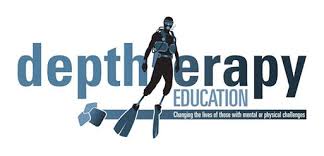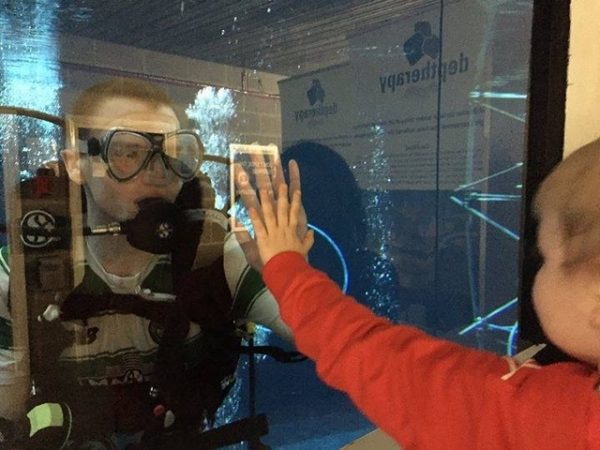A new academic study by the University of Sheffield Medical School confirms the effectiveness of Deptherapy’s programme in rehabilitating Armed Forces veterans through the medium of scuba diving and ongoing peer support.
The Sheffield Study (2021) is the fourth academic study since 2016 to demonstrate that the ‘Deptherapy model’ is effective in supporting the psychological rehabilitation of UK Armed Forces veterans with lifechanging physical and mental injuries. This Study was the first within the scuba diving community to analyse the wellbeing of beneficiaries on a longitudinal basis. It used qualitative and quantitative methods (using a modified Profile of Mood States (POMS) methodology) to gather evidence in changes of perceptions of wellbeing from beneficiaries from when they first joined the Deptherapy programme up to the current day.
Whilst the Report as a whole is embargoed (pending journal publication) these are the principal findings:
- An overall mean improvement in psychosocial wellbeing reported by 85% of respondents
- The mean level of Vigour increased from 4.85 to 8.95 (out of 10)
- A significant decrease in mean perception of Tension (-5.30 to +6.05) (on -10 to +10 scale)
- All other clusters (Anger, Depression, Fatigue and Confusion) demonstrated an improvement in mood.
Common Themes:
- 80% of respondents identified the sense of belonging and community within Deptherapy as pivotal in their psychological recovery
- 75% of participants reported the shared experience of learning to dive with other exService people was a positive factor in their recovery
- 75% of respondents referred to the tranquillity of diving having a significant therapeutic effect, in providing both a sense of calmness and also a distraction from physical and mental injuries
- 55% of participants noted the 24/7 availability of continuous support provided by Deptherapy as being invaluable, particularly in crisis
- 50% of beneficiaries reported that being involved in a new, rigorous activity had given them back an ability to participate in physical pursuits and to regain their identity.
In summary, Dr Richard Castle, VP and Mental Health Adviser to Deptherapy, said:
“This Study has, in line with previous academic research, demonstrated that scuba diving itself can provide a sense of calm and achievement. However, the study also demonstrates that a sustained perception of positive mental wellbeing post-diving is critically dependent on there being a long-term supportive community out of the water. That is exactly what Deptherapy sets out to achieve, both in fostering a sense of belonging and also in providing support to our beneficiaries and their family groups through our peer-buddy scheme and a 24/7 hotline for people in mental or emotional distress.”
Dr Richard Cullen, Chair of Deptherapy, added:
“I am very grateful to the students from the University of Sheffield who conducted this supervised research project. This is a very positive piece of research which, once again, validates that the Deptherapy way of supporting the psychological rehabilitation of our beneficiaries is working as we intended. Following the impact of the withdrawal from Afghanistan last year, 2022 is a year in which Deptherapy is expanding our mental health profile to ensure that our beneficiaries, and their family groups, have access to the very best sources of support and advice to hone their psychological rehabilitation and resilience.”
For more information about the work of Deptherapy visit www.deptherapy.co.uk.


















